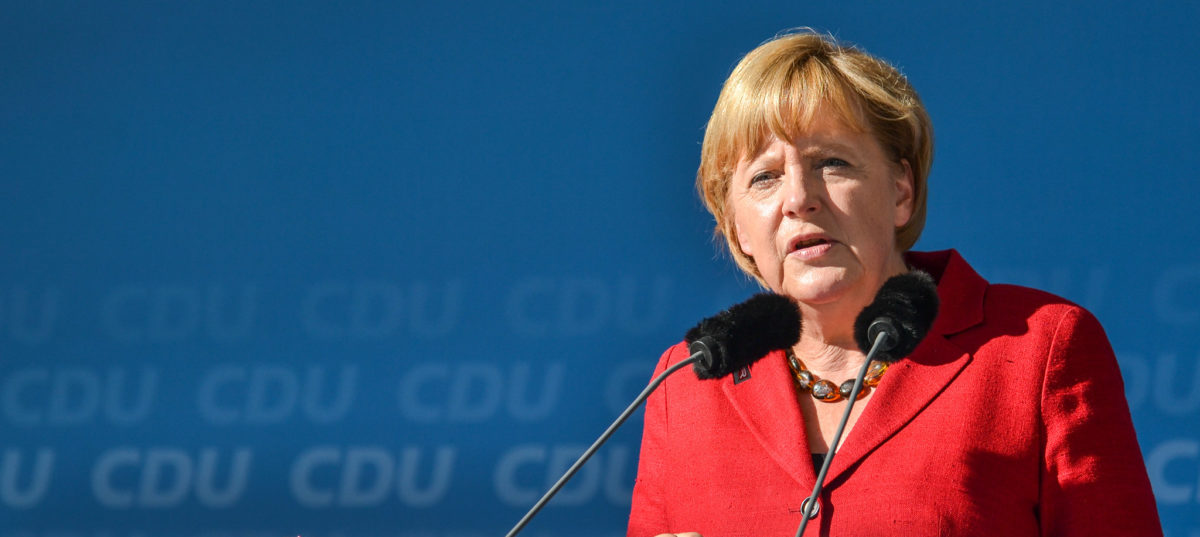From pv magazine Germany.
It took a marathon meeting but the leaders of the CDU, CSU and SPD parties that make up Germany’s governing coalition have agreed on a far reaching package of climate change-related policy measures to take effect up to 2030.
The climate program will cost more than €54 billion by 2023 but will be instituted without new debt, chancellor Angela Merkel (CDU) and SPD finance minister Olaf Scholz confirmed at the launch of the program on Friday, as the streets of Berlin hosted a noisy Fridays for Future climate strike.
The 22-page Climate Change Act will outline the policy framework under which existing regulations will be amended to achieve the sectoral targets set in the paper.
The German solar industry will rejoice at the announcement in the act that: “The currently remaining cap of 52 GW for the expansion of PV systems will be removed.” Under the current system, the solar feed-in tariff (FIT) paid to systems with a generation capacity of up to 750 kW would end after the nation passed 52 GW of subsidized PV generation capacity.
Subsidy threat remains
The German solar industry has long lobbied for the limit to be removed and the announcement is timely as the 52 GW mark is expected to be reached next year.
In removing the cap the government is acknowledging the need to install more electricity generation capacity after committing to phase out coal and nuclear power. However, removal of the cap could prove academic as the FIT paid to small solar systems also has a built-in reduction triggered by big capacity additions every quarter. With Germans embracing solar in ever larger numbers, subsidy levels could soon fall to electricity market prices regardless.
Energy storage facilities will enjoy fee exemptions and other financial incentives as part of the new policy package and the offshore wind power generation capacity ambition will be raised to 20 GW by 2030.
The government has committed to installing a million electric vehicle charging points by 2030 and maintaining incentives for EVs. The new policy package also committed to making public transport more attractive by reducing bus and rail travel fares.
Carbon pricing
Popular content
Sector coupling – using renewable energy in areas such as heating and cooling and transport – is also a focus of the Climate Change Act, with carbon pricing a crucial plank of the strategy.
Hopes of a pioneering carbon tax fell victim to political haggling. The government instead agreed to expand the trading of carbon certificates to the heating and transport fuel sectors. The carbon trading scheme penalizes big emitters by forcing them to buy certificates from greener enterprises if they can’t procure a mandated proportion of their energy from renewables.
A “reliable price path” was laid down that carbon certificates would be issued at €10/ton of CO2 in 2021 and would rise annually to reach €35 in 2025. In 2026 maximum emission levels will be set and will reduce annually as the carbon price continues to rise to €60/ton.
Climate target missed
The new legislation stipulated the carbon pricing scheme would gradually be used to reduce the EEG levy German electricity consumers pay to finance clean energy incentives. From 2021, the EEG will reduce by €0.25/kWh used and in 2023 it will fall a further €0.0625.
In the building sector, a “compensation premium” will be introduced for oil-heated buildings to encourage renovation and the government has pledged to observe the highest energy efficiency and sustainable standards in public buildings.
The legislation also includes measures related to battery cell production, hydrogen technology and the storage and use of CO2.
In announcing the measures drawn up by the ‘climate cabinet’ she is a member of, Merkel acknowledged Germany will miss its target of reducing CO2 emissions by 40% of its 1990 levels by next year. Merkel said the climate cabinet would continue to monitor performance to ensure Germany does not miss the 55% of 1990 levels reduction target set for 2030.
The chancellor was due to showcase the legislation at the UN’s Climate Action Summit in New York today.
This content is protected by copyright and may not be reused. If you want to cooperate with us and would like to reuse some of our content, please contact: editors@pv-magazine.com.



Removal of the 52 GW cap is welcome. As you say, it makes little difference to public spending – but a lot to installers and potential buyers. The cap would have led to an unsustainable and inefficient spike in installations to get in under the limit, followed by a policy-generated slump. We have seen this several times in the on-off history of the US tax credits for wind and solar.
If you abandon FITs entirely, market spot rates have to be smoothed for households, perhaps on a quarterly basis. The latest Spanish legislation on solar provide for this. But an FIT calculated on a market basis. over a longer period provides more certainty. The idea that normal people will want to trade ten euros worth of electricity a week using blockchain is a libertarian fantasy.